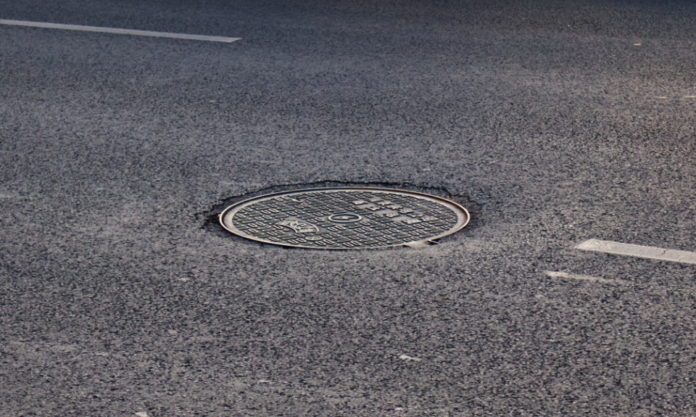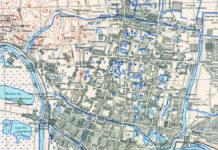For as long as there have been people, there have been comparisons drawn between them. No matter where on Earth, people have thrived off stereotypes, been shocked and amused by them in equal measure.
Today’s politically correct new world order may have had some impact, but it remains that our non-British readers really do not want to know what the English used to say about people from Liverpool.
It was, and to a certain extent still is, no different in China.
Indeed, the term “Yangzhou Mei Nv“ (扬州美女; Beautiful Yangzhou Girl) is likely the most hackneyed, stereotypical expression in China. Granted we may hear it more than most on account of Nanjing’s proximity to Yangzhou, but nevertheless, the term hints at the depths of stereotyping in the Middle Kingdom.
Recent history has an interesting story to tell. China is a very large country full of extreme geographical and climatic variety. There are the hundreds, if not thousands, of local dialects spoken everywhere (Mandarin? What’s that?), while cuisines cooked up across the land, together with the clothes worn by those who consume them, could not be more different.
Most significantly of all, though, is the fact that there was so little in the way of transportation infrastructure until comparatively recently. Few would stray far from their home towns. Those who did perhaps faced an arduous week-long journey.
And when they came back, they brought with them eye-popping tales of the other beings they had encountered.
It was under this backdrop that people thus identified themselves with their particular locality rather than thinking of themselves as Chinese. And so they also drew comparisons based upon the personality traits and attributes broadly assigned to others.
Much like a game of Chinese whispers, these assigned attributes then morphed over the years and became more extreme in nature.
Some of the more negative stereotypes that have developed in China as a result would make even a Liverpudlian’s hair stand on end.
While the good people of Yangzhou have got off lucky by being stereotyped in a largely complimentary fashion, the same cannot be said for those from Henan Province.
Negative stereotyping about the people of the central-southern province reached an all time high in the first decade of this century. It was no coincidence that this time also saw rural-urban migration go through the roof.
The issue is discussed at length by Margaret Maurer-Fazio, Rachel Connelly and Ngoc-Han Thi Tran in their paper, “Do Negative Native-Place Stereotypes Lead to Discriminatory Wage Penalties in China’s Migrant Labor Markets?”. Therein, The China Law and Governance Review 2006 stated at the time that Henan people were particularly singled out as possessing a host of negative traits.
As such, they experienced prejudice on almost a daily basis. Often branded common thieves (the general perception is that they like to steal manhole covers), the Henanese found themselves discriminated against in the job market. “Henan people need not apply” was reported by the Nanhu Evening News as having been seen on job postings in 2006.
Apart from the prejudice faced by the Henanese themselves, their reputation was also being hammered home into the minds of children elsewhere. The Shanghai Star newspaper in 2005 reported that it became popular for parents in Sichuan Province to berate their children with the expression, “Behave yourself, or we’ll send you to Henan”.
These extreme times also called for extreme measures. In perhaps the saddest example, students from Henan going to university in cities elsewhere would often seek out ways to change the birthplace on their ID card, as a way to escape the taunts and discrimination of their classmates.
So that’s Henan out of the way. Good riddance. But of course, the Henanese are not alone in being the target of negative Chinese stereotyping.
Northerners also bear quite a brunt, as they do almost everywhere.
Up north, it is of course cold. The provinces of Heilongjiang, Jilin and Liaoning may have Siberian winters, but they are rewarded with their beautiful long-legged women. Only problem is the rest of China also know them for being hard drinkers keen to start a fight over any minor fracas.
Back over in the west in Sichuan, the province is blessed with a mild climate, plenty rainfall and fertile soil. That great biodiversity, set off against beautiful landscapes, has earned it the nickname of “land of abundance”. Hence the stereotype that Sichuan people, the women in particular, have good skin. Well, that is when they are not setting it ablaze with their spicy food.
Next up on our stereotype tour of China, the provinces of Jiangxi and Hubei. The expression, “天上九头鸟,地上湖北佬” (Nine birds in the sky; Hubei people on the ground), which means that Hubei people may generally be canny, in a subtly negative sense, has its origins in neighbouring Jiangxi.
For there it is said, “九个湖北佬,不如一个江西老表”; Nine Hubei men are not as good as an old Jiangxi watch. With the province’s pleasant climate, rich produce and self-sufficiency in food, the people of Jiangxi people are therefore gentle, present little difficulty and shy away from empty talk.
Just as an old watch, they are simple, honest, realistic and hard-working. But perhaps also a little, well, behind the times, so to speak.
The folks north of our own Jiangsu also get off lightly in the Chinese stereotyping department. While they too are known for enjoying a drink or five, the down-to-earth folks of Shandong Province are thought of as trustworthy and loyal. But not too lightly. Shandong people are also regarded as being a bit, well, slow to pick up on things. And the men are just plain lazy.
Finally, where would we be without mention good old Shanghai? Excellent businessmen, it is well known. But the ladies? Infamous they are, but we are way too afraid to report further.
It’s a sure thing; the Chinese can have a sharp tongue with the stereotypes of their own people. And so when we as foreigners are branded as all being the same, however frustrating it may be, perhaps we should cut them a little slack.
As for us Nanjingers; well, we’re the best, of course. And if you believe that…












